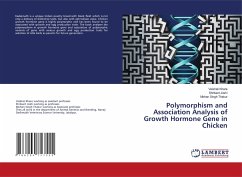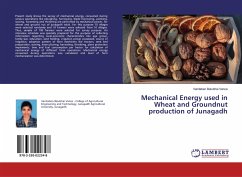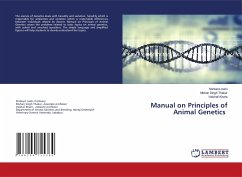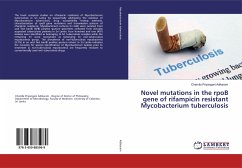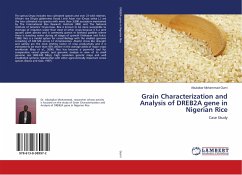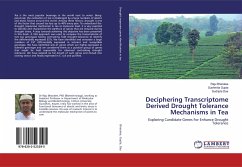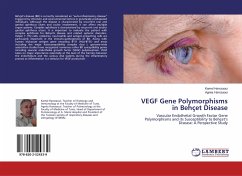
Gene Action and Marker Assisted Backcross Studies
for Late Leaf Spot and Rust Resistance in Groundnut (Arachis Hypogaea L.)
Versandkostenfrei!
Versandfertig in 6-10 Tagen
57,99 €
inkl. MwSt.

PAYBACK Punkte
29 °P sammeln!
Groundnut, also known as "The king of oilseeds", is a self pollinated crop grown in tropical and sub-tropical regions of the world. It is utilized as a vegetable oil and protein for human consumption, as fodder for livestock and as green manure. Worldwide, diseases are important reducers of groundnut yield. Several biotic and abiotic stresses limit the realization of the full genetic potential of modern improved groundnut varieties. Yield of groundnut is constrained due to foliar fungal diseases namely late leaf spot and rust, which are economically important and causes yield loss up to 70%. T...
Groundnut, also known as "The king of oilseeds", is a self pollinated crop grown in tropical and sub-tropical regions of the world. It is utilized as a vegetable oil and protein for human consumption, as fodder for livestock and as green manure. Worldwide, diseases are important reducers of groundnut yield. Several biotic and abiotic stresses limit the realization of the full genetic potential of modern improved groundnut varieties. Yield of groundnut is constrained due to foliar fungal diseases namely late leaf spot and rust, which are economically important and causes yield loss up to 70%. Though several effective fungicides are available to control the diseases, the host controlled resistance is considered the best strategy to surmount additional cost of production and hazardous effect of fungicides on the soil and environment. The dynamic challenges of groundnut farming demand a quick response from breeders to develop new cultivars, a process that can be aided by the application of molecular markers. With this framework, targets were aimed to introgress foliar fungal disease resistant genes into groundnut genotypes through marker assisted backcross breeding programme.






